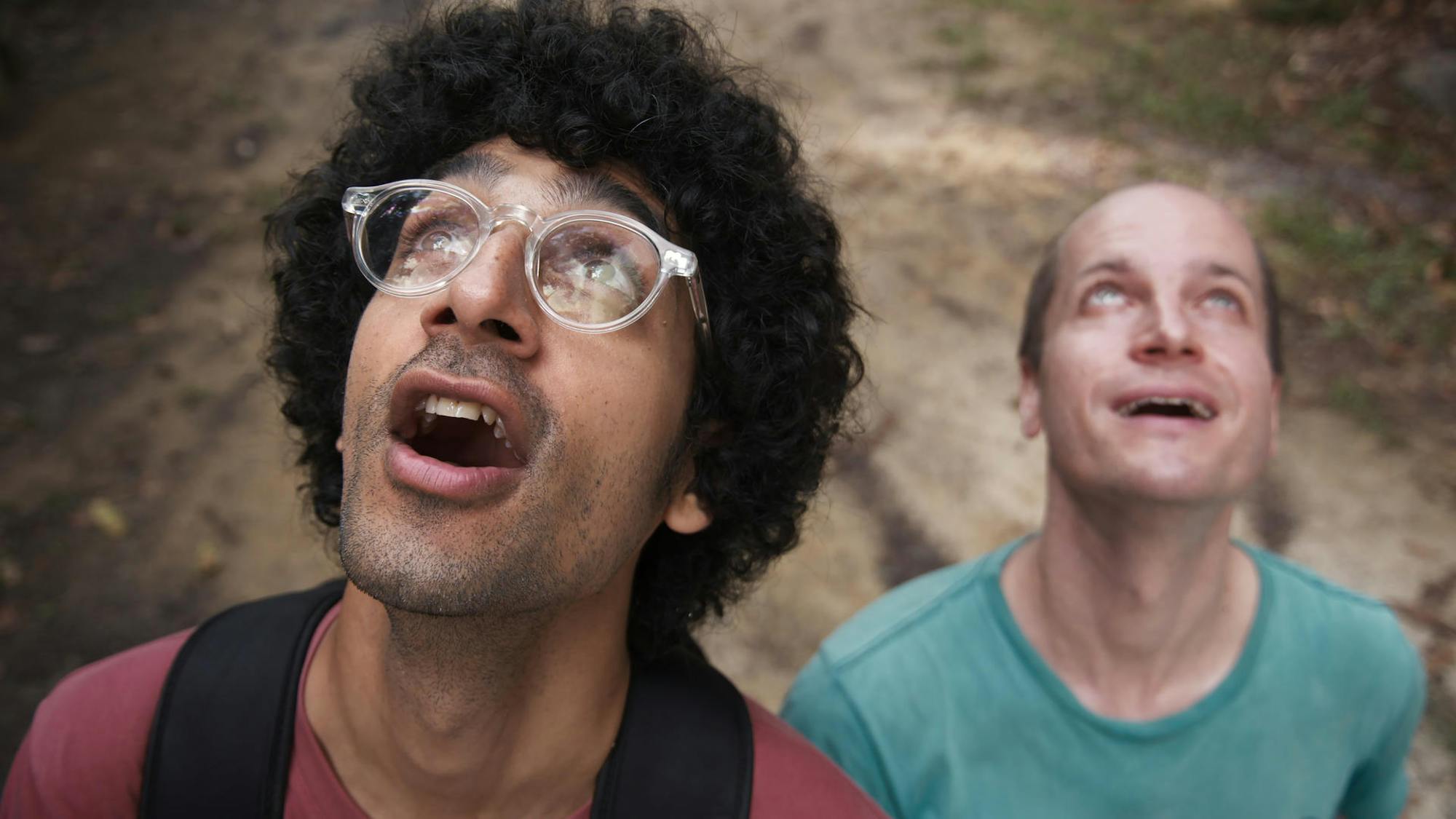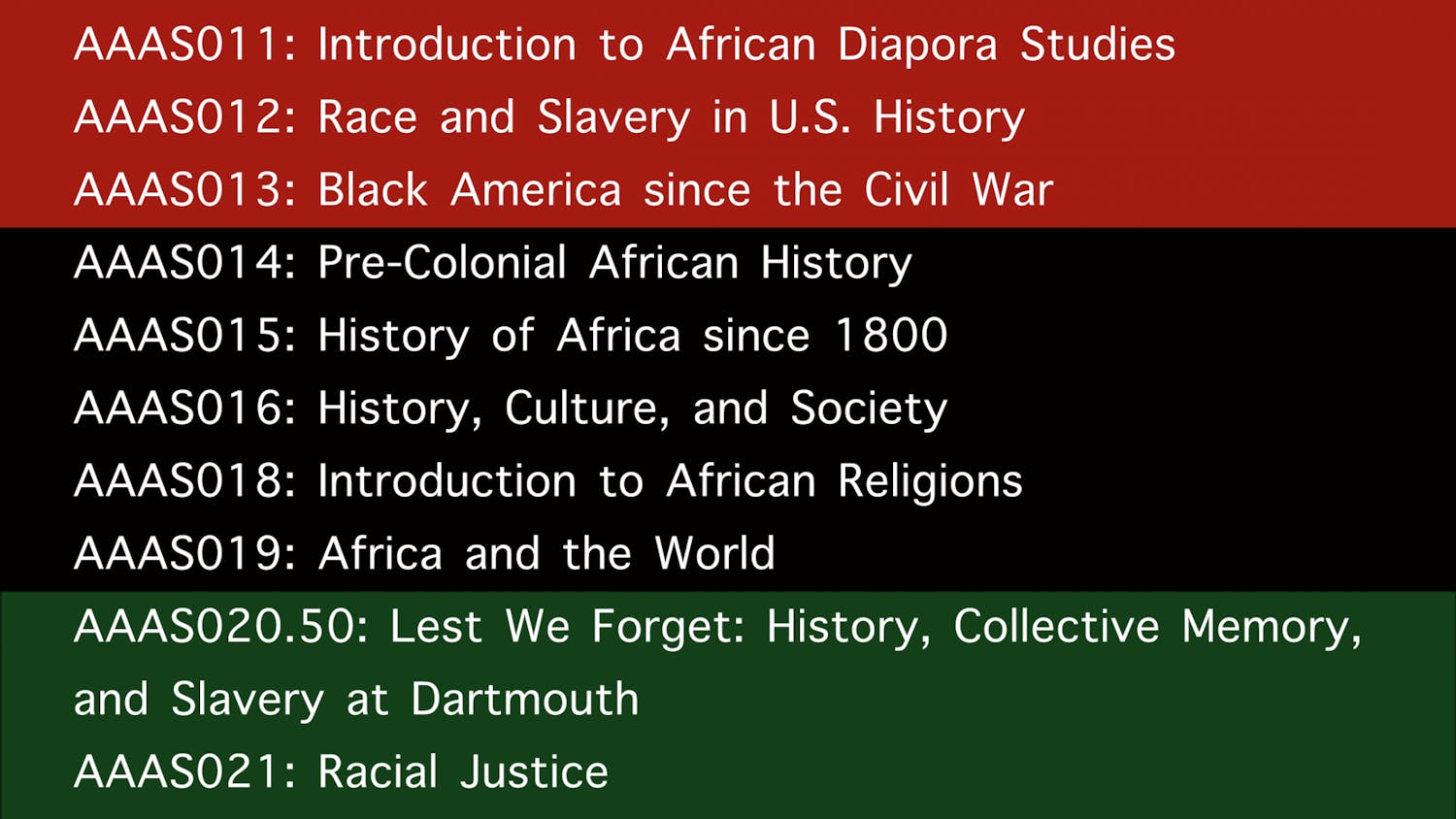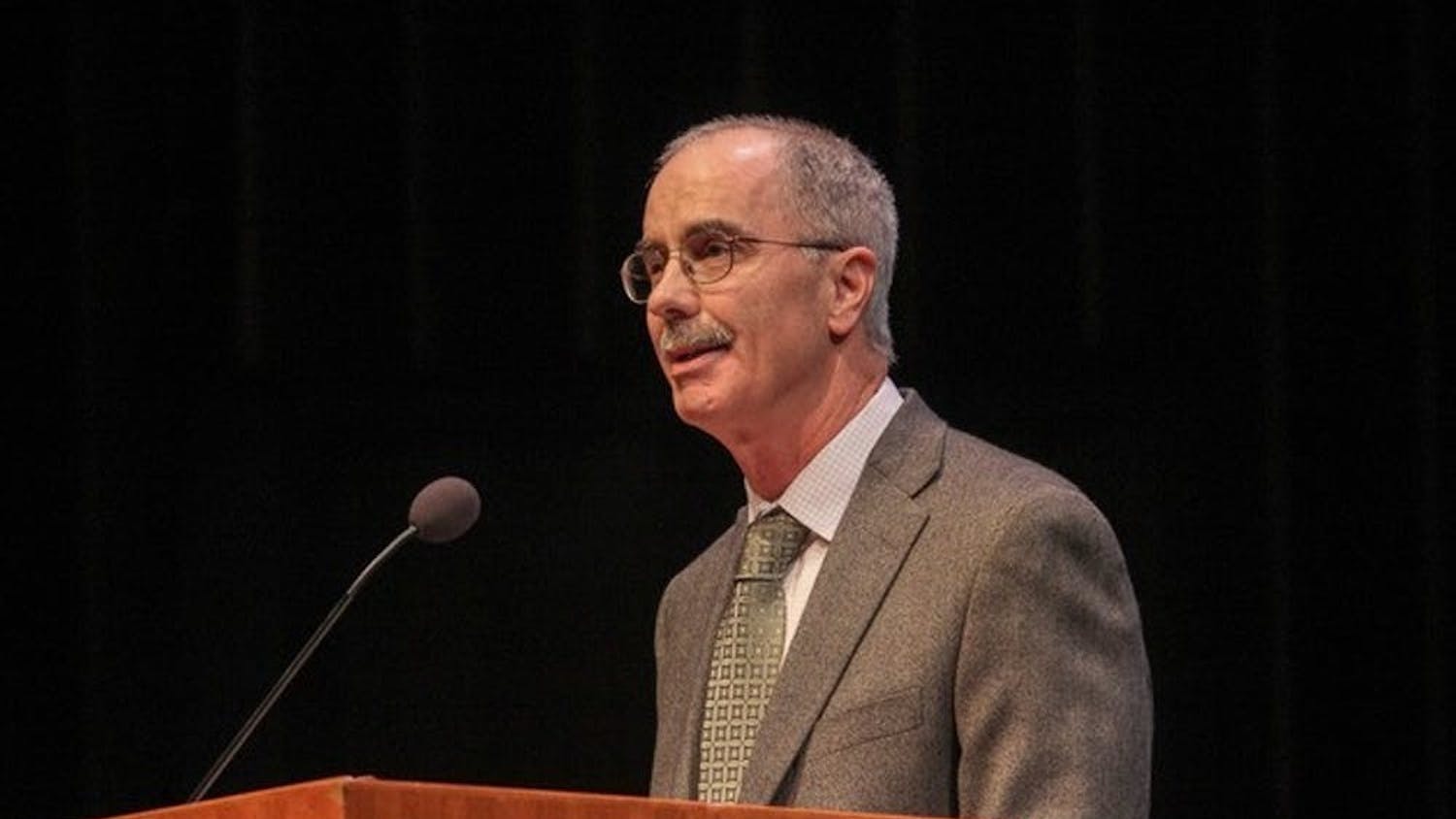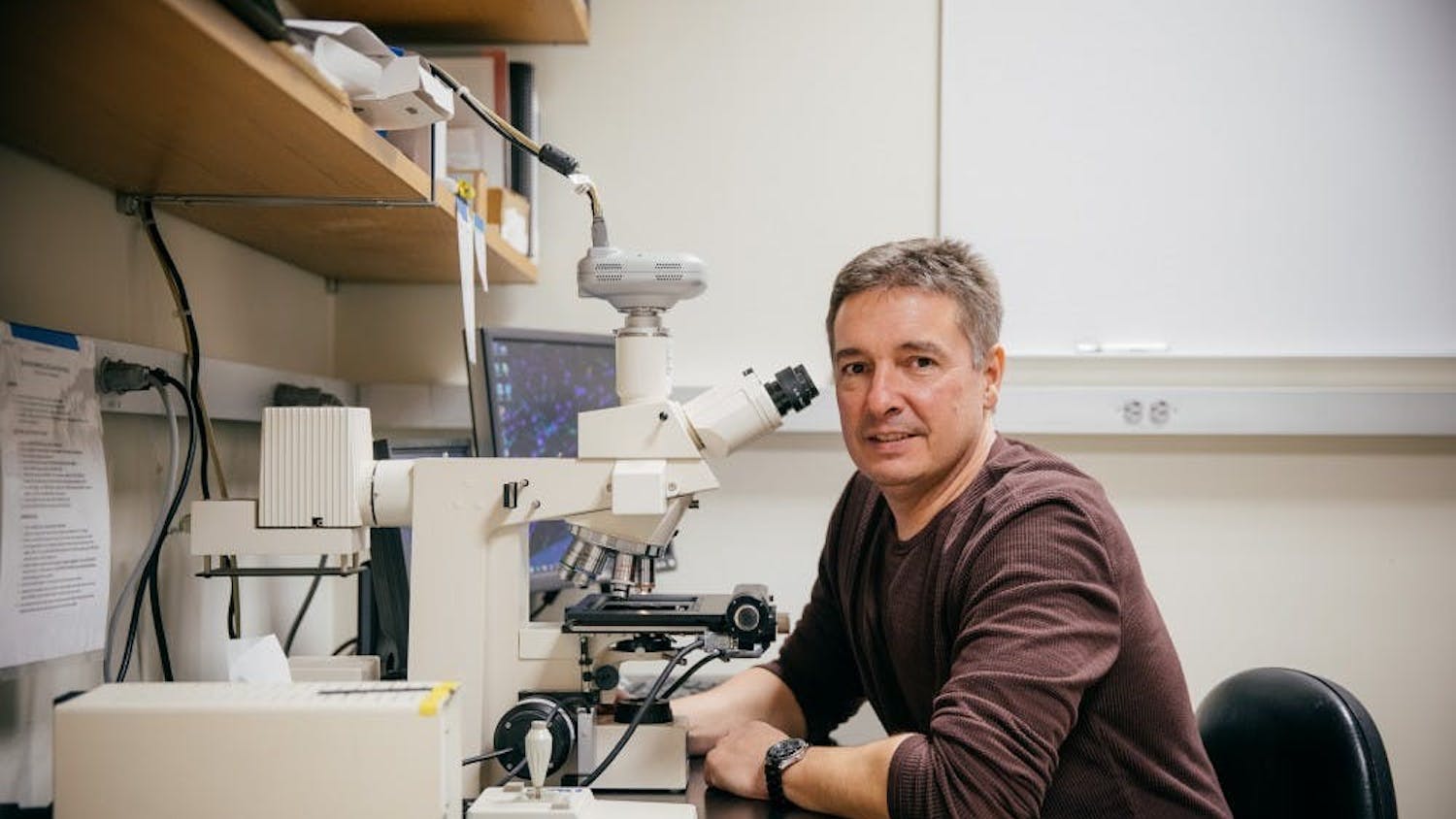Latif Nasser ’08 is the director of research at Radiolab, a Peabody Award- winning podcast and nationally syndicated radio program on predominantly science-related stories, with subjects ranging from snowflake photography to medieval robots. He is also the host of the new Netflix special, “Connected,” which explores the connections between seemingly distinct phenomena, and of the recent Radiolab miniseries “The Other Latif,” in which Nasser follows the drama-filled story of a detainee at Guantanamo Bay with whom he shares a name. As an undergraduate at Dartmouth, Nasser was president of the Displaced Theater Company, tutored at the Student Center for Research, Writing and Information Technology and was chosen by his graduating class to speak on Class Day.
At Dartmouth, you spent a lot of your time writing and directing theater productions. How have you been able to apply your playwriting background to the journalistic work you've done?
LN: As a theater kid at Dartmouth, I kind of haunted the Hopkins Center. I don't think I ever would have foreseen going in the direction that I've gone professionally, especially since neither podcasts nor Netflix were around at the time. But in terms of how I've applied my playwriting background to my work, I think that there are two things. One is the ability to sculpt the narrative — to be able to shape the story by playing with audience expectations, to have some twists and turns in the story, to allow for character development and to have a compelling arc to the story. All those things are theater 101, and I still use all of them both in my radio and TV work.
The second thing is sort of a self-confidence thing. It's really hard to get up in front of people as an actor or to present your work to people as a writer or a director. And that confidence to stand up and try to say something — which can be very, very intimidating — that's what I used to do in the black box theater in the Hop, and that's now what I do every day.
How did you initially become interested in science and the history of science, and how did that interest develop into a career in science reporting?
LN: I can pinpoint the exact moment it happened. I was at Dartmouth, taking a class on the history of physics or astronomy co-taught by physics professor Marcelo Glaiser and history professor Rich Kremer. And as part of the class, which had plenty of theater kids in it, we had to do a special project. I think it was supposed to be an essay, but then we thought, what if instead we did a production of Bertolt Brecht's “Life of Galileo.”
As part of the performance we needed props. So I went to Rich Kremer and told him what we needed, and he led me to the basement of the physical sciences building. There were these unmarked double doors to the basement, and he opened them up and I walked into that room and it just felt like a giant warehouse of random scientific stuff. It felt like a mad scientist's lair or something. I told Rich Kremer that I didn't know what half of the stuff around me was, and what was awesome was that he told me he didn't know what half of it was either. It turned out that this room was a historic scientific instrument collection that Dartmouth has.
After that, I became Rich Kremer’s research assistant. And basically he told me that if I was interested in learning what half of this stuff was, then he was too, and that I should just pick an object and research it to figure out what it is. And so that's what I did — I'd pick the weirdest looking instrument that I could find and then would do tons of research on it.
I got to present a paper on one of these objects at Harvard while still an undergraduate, and what I realized was that not only did Rich Kremer not know about this thing, but nobody knew about it. This was an object that there were maybe two of in the whole world, and I was at the cutting edge of something — I had asked a question about this object and its existence that nobody else had asked.
In one of the episodes of “Connected,” you talked to former Dartmouth computer science professor Hany Farid about deep fakes — hyper-realistic fake images, video or audio created by artificial intelligence technologies — and about potential methods for detecting them. How have professors and classes at Dartmouth shaped or influenced you and the work you've done?
LN: For part of my time at Dartmouth I lived in Foley House, a shared-interest house slightly off campus where a bunch of students would live together and cook for each other every night. One night, a night that I was cooking, other students brought professors that they really liked. There were so few of us around the dinner table that we just started talking — me and Hany Farid, who was sitting next to me. And then we got into this argument. I remember vividly that he was convinced that fake images online were going to be indistinguishable from real images. And he was telling me this stuff about deep fakes and fake news over a decade before it became something that ordinary people were concerned with.
At the time, it just seemed like the work he was doing was such an obscure, niche thing. And now so much of that has come home to roost. And all of a sudden, our whole society, our whole idea of truth, our whole democracy depends on it. Every time I think back to that dinner, I'm astounded by the level of foresight that he had. Even now, 10 years plus later, he's still ahead of the curve.
I think so much of the value of Dartmouth was in the professors that I had. So many of the professors I had, I would visit their house, hang out with them into the night — especially in the theater department, because once a play went up we'd have an opening night party at a professor's house. I owe so much to so many teachers and staff at Dartmouth. They gave me such a great education and such a vision of what was possible.
What is the creative process you go through when reporting on a story, and how does that vary in the podcast versus streaming format?
LN: Usually I'll just be walking around or reading something else or just thinking about something, and I'll have a question. Just a dumb question — like an actually dumb question. And then what I'll do, is I'll write it down and take it very seriously. I'll call up the experts, and I'll try to imagine different scenarios, or the most interesting limit case, or other places or people to talk to about this particular question, and I'll be trying to sniff out a story.
For Radiolab and “Connected,” your holy grail is a dramatic story — the kind of thing that would be a movie, with characters and plot twists — that has a big idea in it that makes the story bigger than itself. So even though it's some tiny niche story about some random subcommunity that you've never heard of, or some diamond mine in northern Canada that you could have never imagined was there, when you hear that story, it should feel like it's about everything — like it's the universe in a blade of grass.
In addition to hosting “Connected,” you're director of research at Radiolab. Could you describe what that role looks like day to day?
LN: Most of my job is finding my own stories, pitching my own stories, reporting my own stories and producing my own stories. But another big part of my job is kind of finding outside contributors and outside pitches. A lot of the time we have a very high throughput of ideas and stories, and we're kind of a clearinghouse in a way where a lot of people pitch up stories all the time. I also help my colleagues and fellow producers by listening to their drafts and helping them workshop and report out their own stories.
Most of the work I do is reporting, because to me the joy is in actually getting out there, finding stories and talking to people. That's the part of it I really love. I would say that the best part of my job is finding a new story and being able to surprise myself and to surprise my colleagues in our pitch meetings, and then ultimately getting to surprise our listeners with a story.
What advice would you have for Dartmouth students looking to pursue a career in journalism or radio?
LN: The best advice I've gotten comes from Ira Glass of the radio program “This American Life.” I'm going to bastardize it, but the basic idea is that you get into a field like podcasting or journalism because you can see other people doing it really well, and you admire their work. And you might have a good taste for what makes a good story, but then when you start to make one yourself, you realize really early on that your stories suck, and they suck because you're just starting. You realize that the ones you love so much are written and produced by people who have been doing this for years and have honed their craft. And when you start out, you can tell with your own taste that it's not nearly as good as you want it to be. And the point that Ira Glass makes is that you need to push through that — to sum it all up, you have to suck before you get good.
This interview has been edited and condensed for clarity and length.





